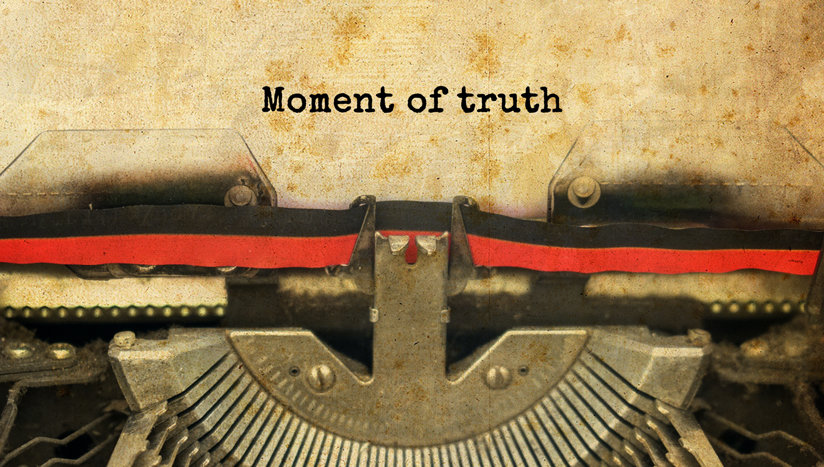
-
HOME
-
WHAT IS STANDOur Mission Our Values Our Help Contact
-
WHAT WE FIGHT FORReligious Freedom Religious Literacy Equality & Human Rights Inclusion & Respect Free Speech Responsible Journalism Corporate Accountability
-
RESOURCESExpert Studies Landmark Decisions White Papers FAQs David Miscavige Religious Freedom Resource Center Freedom of Religion & Human Rights Topic Index Priest-Penitent Privilege Islamophobia
-
HATE MONITORBiased Media Propagandists Hatemongers False Experts Hate Monitor Blog
-
NEWSROOMNews Media Watch Videos Blog
-
TAKE ACTIONCombat Hate & Discrimination Champion Freedom of Religion Demand Accountability
The Real Deal With Disconnection
We in Scientology believe that the most fundamental right of any being is the right to communicate. All other rights follow that right.
And so I had no problem with the lone protester exercising his First Amendment rights who greeted me outside the concert hall where I, along with several thousand other Scientologists, attended an international New Year’s event celebrating our religion’s accomplishments over the preceding year.
The protester shouted something at me something I couldn’t quite make out between all the expletives, but he was apparently complaining, loudly and disruptively, that I somehow was personally preventing his grown daughter from having a conversation with him. Quite aside from the fact that I didn’t know the fellow nor his daughter, and quite aside from the fact that, if a grown man screams dirty words and insults, I wouldn’t want to have a conversation with him either, quite aside from these things, the protester had it wrong.
He was referring to our church’s policy of “disconnection.”

Disconnection is what an individual member can choose to do when all attempts to mend a relationship have failed, and it has now become a matter of either continuing to suffer under physical or mental duress or to simply cease communicating with the person.
So a corollary of the right to communicate, then, is the right to NOT receive communication from another. It’s the right to privacy. It’s right up there in Article 12 of the Universal Declaration of Human Rights.
Excommunication—literally “not communicating” with someone who not only disagrees with you but has been shown to be an out-and-out danger to your person, privacy, livelihood or well-being—follows a religious tradition that goes back millennia. And it is more than just the individual’s right, it is common sense! Disconnection finds parallels in Christianity’s excommunication, Judaism’s “cherem,” the Amish’s “shunning,” or any of the many forms of ecclesiastical censure that form a bulwark of protection for other faiths.
In my long experience, the only people I’ve found to be complaining about what they claim is “disconnection” are people you wouldn’t want in your boudoir after dark.
A friend of mine who lived among the native Inuits of far Northern Canada told me that if a person in the community, through his or her behavior, attitude and refusal to change, had now become a liability to others, he would simply “disappear” for the community. People would literally no longer see, communicate or acknowledge the person in any way, shape or form, even if he was standing right there. He would literally cease to exist, as far as the community went. Then, once he got his act together, people would once again see and acknowledge him.
And just like other faiths, ours has strict guidelines regarding disconnection. Communication is cut off only as a last resort after all other attempts to repair the relationship have failed.
Disconnection, in Scientology, is defined by Mr. Hubbard as “a self-determined decision made by an individual that he is not going to be connected to another. It is a severing of a communication line.”
And, as in other faiths, it’s not arrived at lightly. I remember reading about how Leah Remini was lamenting the fact that, since she’d left our Church, she’d lost all her Scientology friends.
Well, duuhhh! Imagine the following:
Telephone rings. Scientologist answers.
Scientologist: Hello?
Leah: Hi, it’s Leah. I’ve been bad-mouthing and lying about your most cherished and deeply-held beliefs concerning you, your family, mankind and life itself to anyone who will listen, AND I’ve been making money off it, to boot. Wanna hang out?
Scientologist: Um... I’m busy tonight...
Communication must go two ways—back and forth—to be communication. “Hello, how are you?” “Fine thanks, and you?” “Can’t complain.”
True story: A husband divorces his wife (a form of disconnection) after she terrorizes their little girl with a butcher knife. The wife’s brother, a lawyer, SUES THE HUSBAND for knocking the wife down, snatching the knife and saving his child’s life. The lawyer and his sister KNOW that the husband makes a great living, and they want to get a large piece of that pie before they leave the party. They don’t want to let him disconnect, at least not until they’ve soaked him for all he’s got. Thankfully, it didn’t work. Three years and tens of thousands of dollars later, the husband is finally able to close that chapter in his life and truly disconnect.
You’ve heard variations on this theme, I’m sure. At the bottom of the crocodile tears is something unsavory, like the chance for some easy, dirty money.
In my long experience, the only people I’ve found to be complaining about what they claim is “disconnection” are people you wouldn’t want in your boudoir after dark.

And regarding family, Mr. Hubbard advises that, in dealing with a toxic sibling, parent, or spouse, one “does not recommend that the person disconnect.” The advice is to smooth out the situation using communication. Ninety-nine times out of a hundred, if a family situation is addressed in this way, the problem will resolve.
It’s that one time out of a hundred, such as the case of the husband saving his child, wherein the individual is entirely justified to shut off communication until such time, if any, when the offending person has handled his or her own antisocial conduct sufficiently that communication is once again safe.
Meanwhile, at the New Year’s event, great strides are chronicled and applauded in, among other things, our drug rehab program, Narconon, which saves countless good people from the precipice of addiction; Criminon, our much-applauded criminal rehabilitation program which restores life and self-respect to those who otherwise face a life of closed doors; and Applied Scholastics, which flings the gates of knowledge open by enabling thousands of students to communicate with and truly understand their world for the first time through a study technology that actually works.
Drugs. Crime. Ignorance.
These are the things that break up families.
The promoters and cheerleaders of drugs, crime and ignorance—those who lie awake nights contemplating how right they are and how wrong the rest of us are; those who continually covertly and overtly plot against good people; those who have never themselves sinned in their own minds, but have only been sinned against, thereby justifying their vicious behavior—those are the people who rail against disconnection, as that action alone is the only effective way to stop such people from ruining the hopes, dreams and lives of the rest of us.
I personally would prefer not to be around such people.
What about you?









